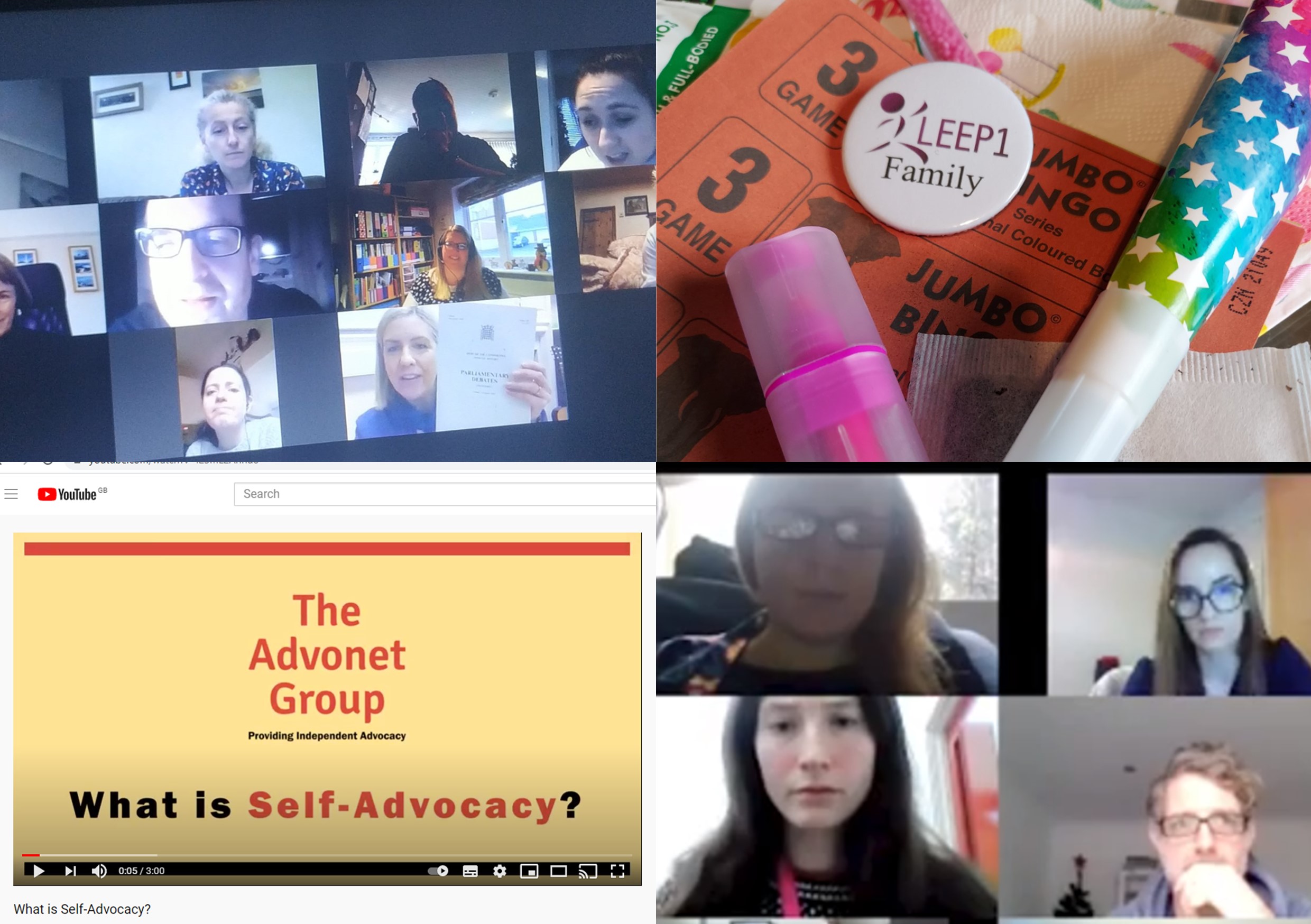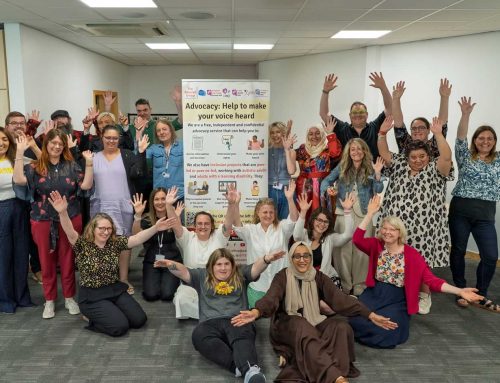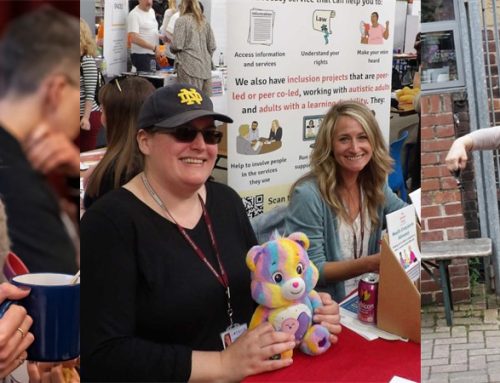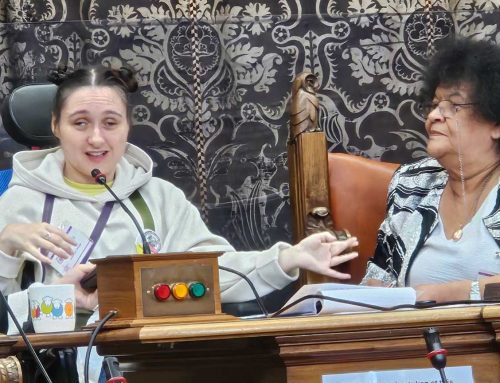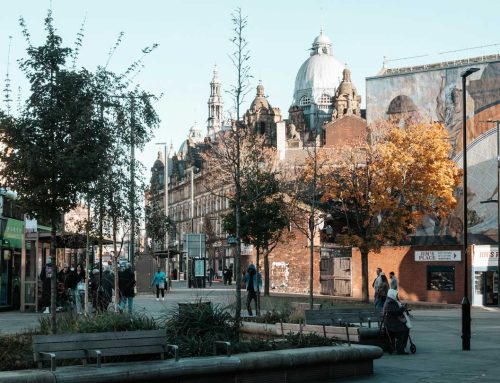A year has passed since the first Coronavirus (COVID-19) lockdown started. In that time, a lot of our services made changes in how they supported people to make their voices heard. We did our very best to continue to offer advocacy to those who need it the most.
In the past 12 months, we have offered a number of services remotely. This involved using new and existing technology to communicate with our clients and members. In this blog post, we look at how we did it and what we have learned.
Our advocacy services
The Advonet Group’s contracted advocacy services all began to offer help by text chat and, a little later on, video call. We were able to answer any enquiries by email and phone, whilst our First Contact Team (FCT) and a small number of our staff team remained working from our office.
Many of our Care Act, Independent Mental Capacity Advocacy (IMCA) and Independent Mental Health Advocacy (IMHA) advocates were able to meet people in a COVID-safe way. As for our Community and Health Complaints Advocacy teams, they provided remote advocacy and essential face-to-face meetings throughout the year.
As different lockdowns have eased and more safety measures have been taken, more staff have been spending at least some time in the office, which we have made as COVID-secure as possible. We have continued to deliver all of our services except our outreach surgeries. The addition of online referral forms to our website has made it easier to refer for advocacy.
To promote advocacy and find out what is happening across Leeds, some of our teams have been attending forums and training. This has helped to spread the word about our service.
Self-advocacy resources
Not long after the first lockdown began, our Community Advocacy team published a suite of self-advocacy tools. They were made to help people speak up for themselves and for their rights. The tools included a meeting planner, phone call planner, complaints template and factsheets on areas like housing and benefits.
To date, the tools have been downloaded over 3,000 times. At the time of writing, we are making a few changes to ensure they are more accessible and easier to use.
We have developed our self-advocacy support to help people get access to advocacy as soon as possible. We take referrals over the phone and by email, depending on the issue(s) and urgency of each person. Between October-December 2020, 61 people were referred for self-advocacy support within our Community Advocacy team.
Leep1 and Café Leep
In just a few days after the first lockdown began, the Leep1 and Café Leep team set up a Facebook group for their members. They started running a timetable of weekly Zoom sessions, including socials, club nights and keep fit classes.
Quickly, the group gained over 300 people and helped to keep many members and others connected when they were otherwise isolated. Leep1’s digital inclusion work as part of the ALaDDIN project has developed and the Abilities Not Disabilities (AND) clothing project continued distanced group work.
In between all that, the Café Leep team have successfully used Zoom and other new technology to deliver NVQ training. Trainees have been able to learn skills from the comfort of their own kitchens whilst Café Leep has remained closed during many lockdowns.
Leeds Autism AIM
A few days before the first lockdown began, the Leeds Autism AIM team started work on a much-used suite of self-advocacy resources. Their COVID-19 toolkit launched at the start of April and has seen over 2,000 tools downloaded from it. The toolkit included routine planners, a mental health profile and communication profile.
The AIM team have been running one-to-one peer support and post-diagnostic support sessions remotely. Volunteer mentors have been meeting remotely too, mainly by using video calls. From July 2020, they started several well attended regular Zoom groups, alongside a popular Gaming Group on their Discord server.
AIM have also been involved with the Communities of Interest network. In addition to that, engagement with services from West Yorkshire Police to Engage Leeds and Mentally Healthy Leeds has ensured that autistic people’s rights are considered during the pandemic. AIM have recently also started new funded Health Equalities work together with one of our Local Care Partnerships.
Asking You! and Citizen Advocacy
The Asking You! team have been busy during the past year. They have held People’s Parliament meetings online and met with local MPs. They have contributed to reports and consultations on the rights of people with learning disabilities in supported living. Also, they were involved in events such as #LeedsForAll in December 2020.
Their monthly What’s On Your Mind sessions, held jointly with Connect in the North, helped keep people informed about what they could and could not do during lockdown. Latterly, they have been holding weekly catchups with volunteers to keep them connected.
Our volunteer Citizen Advocates have, much like AIM’s mentors, been meeting with their advocacy partners remotely. During that time, a video explaining what a Citizen Advocate does was published on our YouTube channel.
CHANGE
For the first few months, many of CHANGE’s team were furloughed. However, they were able to develop new resources for high-profile clients and delivered training online, including sessions on making accessible information.
Working together with Leep1, the CHANGE team ran weekly Help Hub sessions for adults with learning disabilities. The sessions covered two topics – relationships and sexual health and being LGBTQ+ with a learning disability – rights and stories.
CHANGE staff were also involved in producing accessible training resources, including on a project for Diabetes UK.

